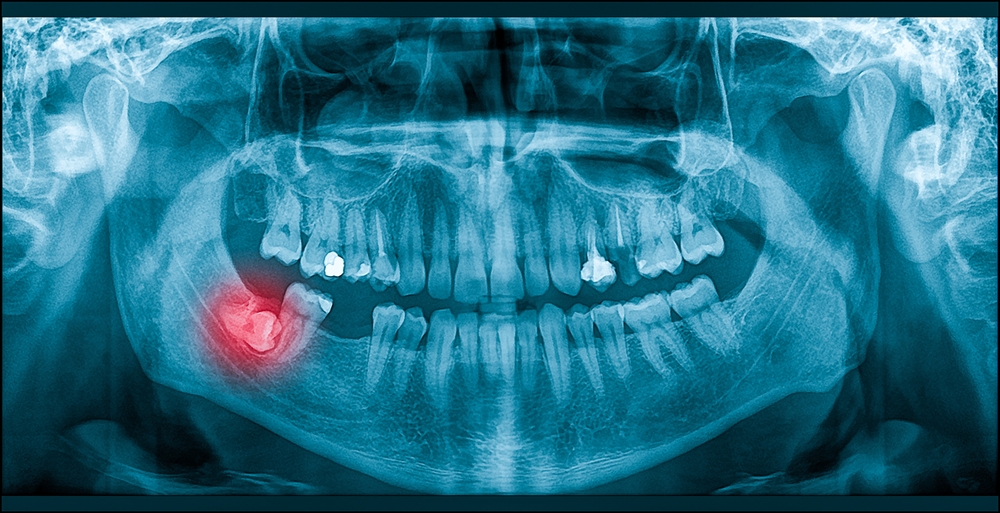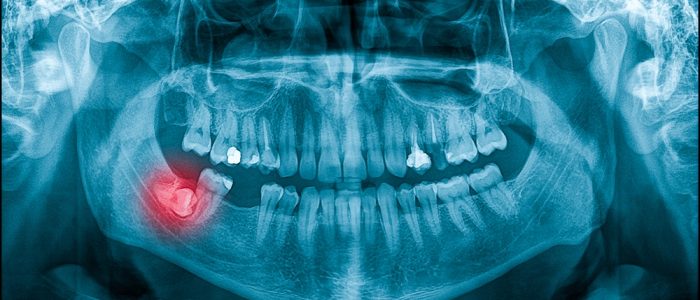Signs Wisdom Teeth are Coming In and How to Manage the Pain

Wisdom teeth typically emerge in late adolescence or early adulthood. While some people don’t experience any issues with their wisdom teeth, for others, the arrival of these molars means discomfort.
Related Post: When Do Wisdom Teeth Come in?
We’ll share what wisdom tooth pain feels like and address common symptoms.
What Does Wisdom Teeth Pain Feel Like?
Wisdom teeth pain can manifest in different ways, depending on the angle of eruption, space in the mouth, and individual differences.
Common sensations associated with wisdom teeth pain include:
- Dull, persistent ache: Many people feel a dull pain in the back of the mouth as wisdom teeth emerge. This discomfort intensifies when chewing or biting down.
- Jaw soreness: As wisdom teeth push through the gums, they can cause inflammation, leading to stiffness in the jaw muscles.
- Pressure or crowding sensation: If there isn’t enough room in the mouth for the wisdom teeth to erupt correctly, they may put pressure on surrounding teeth, resulting in crowding or tightness in the mouth.
- Painful chewing: Chewing or biting down on food can exacerbate wisdom teeth pain, especially if the molars are partially erupted.
Symptoms of Growing Wisdom Teeth
Aside from pain, many other symptoms indicate your wisdom teeth are growing in. These include:
- Swollen gums: The surrounding gum tissue may become inflamed as wisdom teeth emerge. This swelling can cause discomfort and make properly cleaning the area difficult.
- Difficulty opening mouth: Some people experience difficulty opening their mouth fully due to the pressure and swelling caused by emerging wisdom teeth.
- Bad breath: When wisdom teeth partially emerge, food particles and bacteria can become trapped around the tooth, leading to bad breath or an unpleasant taste in the mouth.
- Shifting teeth: In some cases, the emergence of wisdom teeth can cause crowding of the existing teeth, leading to misalignment.
How to Care for Wisdom Teeth
Looking after wisdom teeth is crucial to managing discomfort and preventing complications.
Maintain Good Oral Hygiene
Brush your teeth twice a day with fluoride toothpaste, and clean along the gumline where wisdom teeth often emerge. In some cases, it can be difficult to reach your wisdom teeth to clean them properly.
Flossing helps remove food particles and plaque between teeth, including those hard-to-reach areas around your wisdom teeth.
Use a Soft-Bristled Toothbrush
When brushing around your wisdom teeth, use a soft-bristled toothbrush to avoid irritating the gums and causing further discomfort. Use gentle, circular motions to effectively clean without causing abrasion.
Rinse with Saltwater.
Gargling with warm salt water can reduce inflammation in sore gums associated with emerging wisdom teeth.
Related Post: Gum Health FAQs
Mix a teaspoon of salt with warm water and rinse your mouth several times daily, especially after meals or snacks.
Apply Ice Packs
If you’re experiencing swelling around your wisdom teeth, apply an ice pack to the outside of your cheek to reduce inflammation.
Wrap the ice pack in a cloth and apply it to the affected area for 15-20 minutes, allowing for breaks in between to prevent skin damage.
Avoid Hard or Chewy Foods
Stick to soft, easy-to-chew foods to minimize discomfort while your wisdom teeth come in.
Avoid crunchy or sticky foods that irritate; instead, opt for soups, yogurt, mashed potatoes, and smoothies until the discomfort subsides.
Use Over-the-Counter Pain Relievers
Over-the-counter pain relievers such as ibuprofen (Advil, Motrin) or acetaminophen (Tylenol) can help alleviate mild to moderate pain.
Follow the instructions on the packaging and consult with your healthcare provider if you have any underlying medical conditions.
Maintain Regular Dental Checkup
Routine dental checkups are essential for addressing any issues early on. Your dentist can provide personalized advice on caring for your wisdom teeth and recommend treatments.
Seek Professional Care When Necessary
If you experience severe or persistent pain, signs of infection (such as fever or swelling), difficulty opening your mouth, or changes in your bite, seek professional dental care promptly.
Your dentist can evaluate the situation, diagnose any underlying problems, and recommend treatment.
When to Visit the Dentist
If you experience severe or persistent pain in the back of your mouth, around your wisdom teeth, seek professional dental care. While some discomfort is expected during the eruption, intense or continuous pain may indicate underlying issues such as infection, impaction, or damage to surrounding teeth or tissues.
Swelling and inflammation around the gums and jaw can also indicate impaction or infection. If you notice significant swelling, redness, or tenderness in the area where your wisdom teeth are emerging, call your dentist and make an appointment.
Symptoms of infection, including fever, swelling, warmth, or pus around your wisdom teeth, require immediate dental intervention. Left untreated, oral infections can spread and lead to serious health complications.
With this, difficulty opening your mouth fully or experiencing jaw stiffness and discomfort may indicate complications with your wisdom teeth.
Related Post: How Do Infectious Diseases Affect My Teeth?
Any changes in your bite or the alignment of your teeth should be evaluated by a dentist, as they may indicate issues with your wisdom teeth. Crowding, shifting, or misaligning can occur when wisdom teeth erupt and exert pressure on surrounding teeth.
Finally, problems with wisdom teeth can sometimes manifest as sinus pain, pressure, or congestion, particularly in the upper jaw.
Wisdom Teeth Issues? Call Northside Dental.
Scheduling an appointment with the team at Northside Dental Clinic in Springfield, MO, is your best bet for maintaining oral health and hygiene. Contact us online or call (417) 862-2468 to book an appointment.

